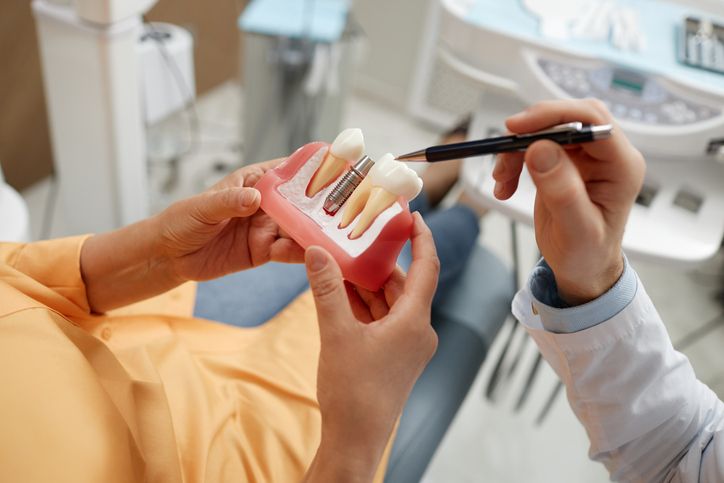Dental Emergency? (724)942-8300
The Role of Sealants in Protecting Your Child's Teeth
This is a subtitle for your new post

When it comes to the dental health of your child, prevention is always better than cure. One of the most effective preventive measures in pediatric dentistry is the application of dental sealants. But what exactly are dental sealants, and why are they essential for your child's teeth?
This article will explain the benefits of dental sealants and how they can protect your child's teeth from decay. By the end, you'll understand why sealants are a smart choice for maintaining your child's oral health.
Understanding Dental Sealants
What Are Dental Sealants?
Dental sealants are a thin, invisible coating applied to the chewing surfaces of the teeth in the back of the mouth, also known as the molars and premolars. Made from plastic or other dental materials, the use of sealants creates a protective barrier against food particles and bacteria, preventing the formation of cavities.
Sealants fill in the tiny grooves and pits on the tooth's surface, making it smoother and easier to clean. This protective layer prevents plaque and food particles from settling into these areas, often difficult to reach with a toothbrush.
Who Can Benefit from Sealants?
Sealants are most effective when applied to a child's molars and premolars soon after they erupt, usually around 6 and 12. They are particularly beneficial for children prone to cavities, who have a history of tooth decay, or who have difficulty maintaining proper oral hygiene. Even children with existing fillings can benefit from sealants to protect the remaining healthy tooth structure.
Benefits of Dental Sealants
Protection Against Cavities
Dental sealants provide a powerful defense against cavities. By creating a protective barrier over the tooth's surface, dental sealants prevent bacteria and food particles from getting stuck in the pits and grooves of the teeth. This helps to reduce the child's risk of tooth decay and helps maintain the integrity of the teeth.
Studies have shown that dental sealants can help reduce the risk of cavities in a child's molars by nearly 80%, making them an essential tool in preventive dental care.
Long-Lasting Protection
One significant advantage of dental sealants is their durability. When properly applied and maintained, sealants can last up to 10 years. During regular dental check-ups, your dentist will monitor the condition of the sealants and reapply them if necessary to ensure continued protection.
Cost-Effective Preventive Measure
Sealants are a more cost-effective option than treating cavities. Treating cavities often involves more extensive procedures, such as fillings, crowns, or even root canals, which can be expensive and time-consuming.
Many dental insurance plans will cover the cost of sealants, making them an affordable, preventive measure for maintaining your child's dental health.
The Sealant Application Process
Preparing the Tooth
Before applying the sealant, the tooth must be thoroughly cleaned and dried. This step ensures the sealant adheres properly to the tooth's surface. The dentist will use a special cleaning solution to remove any plaque or debris from the tooth.
A dry surface is essential for the sealant to bond effectively. The dentist will use a small piece of cotton or an air dryer to keep the tooth dry during application.
Applying the Sealant
The dentist will apply the dental sealant once the tooth is clean and dry. The sealant is carefully painted onto the tooth's chewing surface, covering the grooves and pits. A special light is then used to harden the sealant, creating a strong, protective barrier.
The process is quick and painless, making it a stress-free experience for children.
Post-Application Care
After applying the sealant, your child can resume regular activities immediately. Eating or drinking are not restricted, and the sealant will not affect the appearance or function of the tooth.
Regular dental check-ups are critical to monitor the condition of the sealants. The dentist will check for any signs of wear and tear and reapply the sealant if necessary to ensure continued protection.
Maintaining Your Child's Oral Health
Complementing Sealants with Good Oral Hygiene
While dental sealants provide excellent protection against cavities, they are not a substitute for proper oral hygiene. Have your child brush their teeth twice a day with fluoride toothpaste and floss daily to remove plaque, bacteria, and food particles between the teeth.
Regular pediatric dental visits are also crucial for maintaining your child's oral health. Your dentist can also provide a thorough, professional cleaning and check for any signs of tooth decay, cavities, or other dental issues.
Healthy Eating Habits
Diet plays a major role in the dental health of both adults and children. Be sure to help your child to eat a balanced diet of fruits, dairy products, vegetables, and whole grains. Limit acidic and sugary foods, because they can contribute to tooth decay.
Drinking plenty of water is also critical for maintaining oral health. Water will help wash away bacteria and food particles, reducing the risk of cavities.
Creating a Positive Dental Experience
Creating a positive dental experience for your child is essential for promoting good oral hygiene habits. Encourage your child to care for their teeth by making brushing and flossing fun and enjoyable.
Choose a pediatric dentist to help make dental visits a positive experience. A friendly and welcoming environment can help reduce anxiety and make dental visits easier for your child.
Call Severns Dentistry & Orthodontics
Dental sealants are a valuable tool for protecting your child's teeth from cavities and maintaining oral health. If you're considering dental sealants for your child, we encourage you to consult with Severns Dentistry & Orthodontics. Our experienced dental team can provide personalized advice and help you make informed decisions about your child's dental care.
Contact Severns Dentistry & Orthodontics today to learn more about dental sealants or to schedule a consultation. Your child's smile is worth protecting!

Author:
Natalie Severns, DMD
Upon graduating from the University of Pittsburgh School of Dental Medicine, Dr. Severns specialized in Orthodontics and Dentofacial Orthopedics at the University of Pittsburgh School of Dental Medicine. She then did an externship in London, England, at the prestigious Guy’s Hospital. At this hospital, she learned top therapies in Dentofacial Orthopedics to provide her patients with the best possible facial esthetics.
Blog

©2022 Severns Dentistry and Orthodontics.
All Rights Reserved. Website Design by Higher Images









